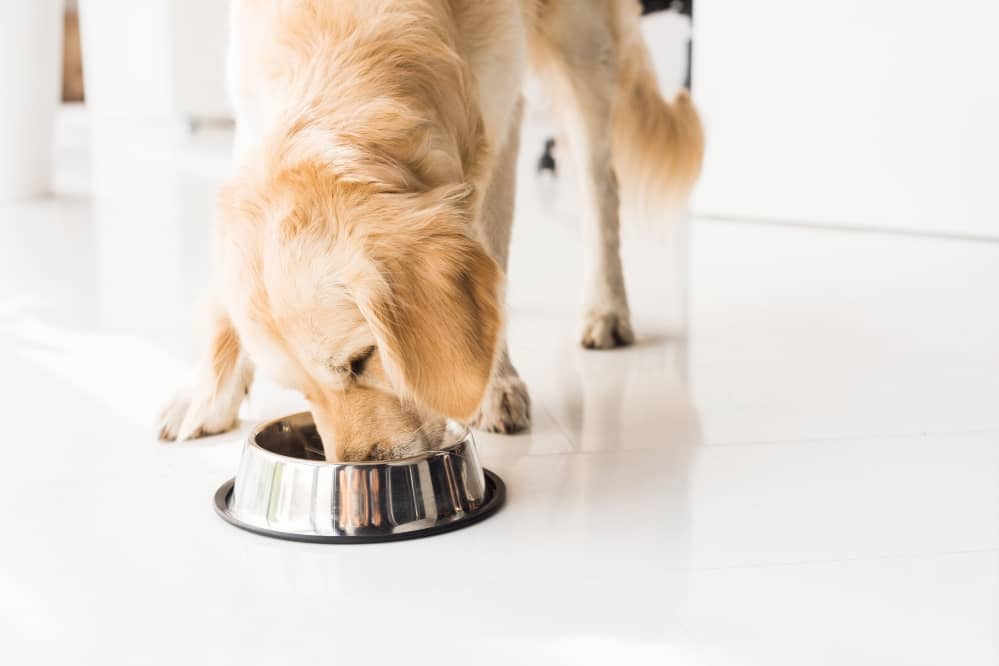Due to their omnivore nature, dogs are known to consume a variety of food sources (both animal and plant origin). One plant-based source that has been gaining popularity in recent years is soybeans, a common ingredient in many commercial dog foods that usually go unnoticed. So, the presence of soybean in the ingredient list surprises many dog owners as most of them think that soybean is something that dogs are not supposed to eat. Therefore, the question of whether dogs can eat soybeans is a common one. In this article, we will delve into the topic of whether dogs can eat soybeans and the potential benefits and drawbacks of including soybeans in their diet.
Can Dogs Eat Soybean?
In short, “YES”, dogs can eat soybean. As a source of vegetable protein, soy is often utilized by dog food manufacturers due to its affordability compared to other protein sources like eggs and meat. However, determining whether dogs can safely consume soybeans is not straightforward, and certain forms of soybean may be ingestible or harmful to your dog. So, it should be included in a beneficial and appropriate form for your pet’s diet (discussed below).
Understanding The Importance Of Soybean For Dogs
Describing dogs as having a protein requirement is only partially accurate. Dogs actually have amino acid requirements, which are the fundamental building blocks of proteins. Out of the 20 amino acids, 10 are considered essential for dogs since their bodies cannot produce or synthesize adequate amounts to meet their biological needs. Therefore, dogs must obtain these amino acids from their diet. All protein sources, whether derived from plants or animals, have unique amino acid profiles, with certain amino acids occurring in higher quantities than others. Protein sources also differ in their bioavailability, with some being more efficiently utilized than others.
“Limiting amino acids” refers to essential amino acids that are naturally present in insufficient amounts but used in the greatest quantities. In dogs, these amino acids include lysine and methionine, and this is where soy products can be beneficial. Soy is particularly rich in lysine and pairs well with animal protein sources.
Forms Of Soybeans That Dogs Can Consume Safely
It is essential to incorporate soybean into a dog’s diet in a digestible form that benefits their overall health. Soy products that are recommended for dogs include:
- Soy protein concentrate: This is a soybean meal that has undergone further processing to isolate the protein, resulting in lower levels of oligosaccharides. This process enhances the ingredient’s nutrient density and digestibility while reducing its impact on stool quality.
- Soy protein isolate: It contains no carbohydrates or fiber and is the most concentrated form of soy protein. It is easily digestible for dogs.
- Soybean oil: This extracted fat from the whole soybean provides energy and is an excellent source of essential omega-6 fatty acid, linoleic acid.
Form Of Soy That Dogs Should Avoid
Dog food manufacturers often limit or avoid using soybean meal in their products, as it is the defatted, flaked form of soybeans used as a protein source and energy source. However, soybean meal contains a higher amount of oligosaccharides compared to other soy ingredients. Oligosaccharides are a type of carbohydrate that cannot be easily digested by dogs and can negatively impact stool quality and increase flatulence. Due to this, soybean meal should not be used in dog food.
How Much And How Often Can A Dog Eat Soy
The frequency at which a dog can eat soy depends on the individual dog’s nutritional requirements and any specific health concerns they may have. Though soy can be a good source of protein for dogs, and dogs can eat it in moderate amounts as part of their diet, it should not be the sole source of protein in their diet. It is essential to provide a balanced diet that includes a variety of protein sources, including animal-based proteins. It is best to consult with a veterinarian to determine the appropriate amount and frequency of soy in a dog’s diet, taking into consideration their age, size, and overall health. Additionally, soy should be avoided altogether if a dog has a soy allergy or any adverse reactions to soy products.
Benefits Of Soybeans For Dogs
Here are various potential benefits of including soybeans in a dog’s diet.
- Protein Source: Soybeans are a good source of plant-based protein, which can be a great option for dogs allergic to animal-based protein or on a vegan or vegetarian diet.
- Digestion: Soybeans are also high in fiber, which can help with digestion and regulate bowel movements. This can be particularly beneficial for dogs that have digestive issues such as constipation or diarrhea.
- Cardiovascular health: Soybeans contain compounds called isoflavones that have been shown to improve cardiovascular health by lowering blood pressure and reducing the risk of heart disease.
- Bone health: Soybeans are a rich source of calcium, which is essential for bone health and development. This can be particularly beneficial for puppies or seniors who may need extra bone support.
Drawbacks Of Soybeans For Dogs
While soybeans can be beneficial for dogs, there are also potential drawbacks to consider.
- Allergic Reactions: Some dogs may be allergic to soybeans or develop an allergic reaction to soybeans over time.
- Digestive issues: While soybeans can be beneficial for digestion, they can also cause digestive issues such as gas, bloating, and diarrhea in some dogs. This is particularly true if soybeans are not introduced slowly and in moderation.
- Anti-nutrient content: Soybeans contain anti-nutrients like phytates and lectins, which can impair the absorption of some minerals such as iron, zinc, and calcium and cause some digestive discomfort in dogs. However, this can be reduced by soaking, cooking, or fermenting the soybeans.
- Hormonal Effects: Soy contains phytoestrogens, which are plant-based compounds that mimic estrogen in the body. While the effects of these compounds on dogs are not fully understood, some studies have suggested that they may interfere with hormone levels in dogs, particularly if consumed in large amounts.
How To Incorporate Soybeans Into A Dog’s Diet
If you decide to incorporate soybeans into your dog’s diet, here are some tips on how to do this:
- Use the correct form of soybean (discussed above).
- When selecting soy products for your dog, choose high-quality, non-GMO soy products specifically formulated for dogs. It is important to avoid products that contain additives, preservatives, and fillers.
- When introducing soy into your dog’s diet, do so gradually over a period of several days to allow your dog’s digestive system to adjust.
- Cooking or fermenting soy can reduce the anti-nutrient content and make the nutrients more bioavailable for your dog. Soaking soybeans overnight before cooking or fermenting them can also improve their digestibility.
- It is important to ensure that soy is not the meal’s main component but a small part of a balanced diet.
- Monitor your dog for any signs of intolerance or allergic reactions to soy. These may include vomiting, diarrhea, skin rash, or itching. If you notice these signs, stop feeding your dog soy immediately and consult your veterinarian.

